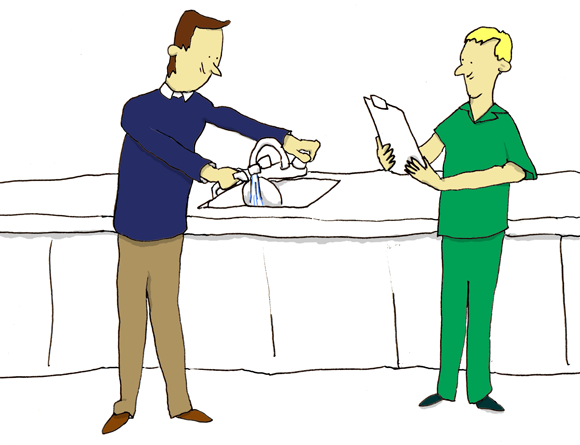Social Interventions: Lifestyle
Active Travel
Inspirational thinking from the healthcare community has combined the well-known benefits of exercise and fresh air in a new treatment modality: “Active Travel” [5]. Instead of prescribing gym membership in combination with intermittent trips to the seaside, patients are encouraged to experiment with low-tech exercise modes (e.g. walking) – in the outdoors.
The new treatment, effective in heart disease, COPD, depression, osteoporosis and obesity [2],[6],[12] which has recently been supported by empirical research [14], is causing consternation among pharma companies. Some are even suspected of moving into manufacture of pedometers, which have proved a useful adjunct and are now widely available on the NHS (www.whi.org.uk).
The approach has since been further refined to make opportunistic use of Activities of Daily Living (ADLs) for physical exercise. Examples trialled so far include:
- • walking to the shops
- • taking the stairs
- • cycling to school
- • gardening (not strictly Active Travel – but is proving effective)
Early successes have boosted confidence among healthcare professionals, who are even trying the treatment themselves (www.networks.nhs.uk/spokes). However, a lack of BMX skills among doctors has hampered interactions with children, leading a number of Primary Care Trusts to take on professional "Bike-It" officers in recent months.
Note:
* Walking at least 1.5 miles per day is associated with 50% lower risk of myocardial infarction [2],[3].
Dietary Advice
Dietary advice appropriate to the vast majority of CDS cases [1],[7],[13] can be divided into the following three categories:
1. Amount
Advice: keep total food consumption in line with energy expenditure and nutritional demands. In practice, this usually translates to “you may wish to consider eating less overall”.
2. Composition
Advice: increase the proportion of vegetables and grains; cut down on processed foods and meat and dairy produce [13].
3. Source
Advice: seasonal and local (unless living next door to intensive beef farm).
Note:
If everyone in the UK stopped eating meat for 1 day a week, the CO2 savings (13Mt) would be equivalent to taking 5 million cars off the road. [8]
Occupational Therapy
Tea-making

In management of CDS, this tried and tested tool of the occupational therapist is once again proving its worth. No modifications are necessary to the OT Department kitchen, and therapy sessions can be held in the patient’s own home, if required.
The therapist pays particular attention to the filling of the kettle, encouraging the patient to practise estimating the correct volume for the required number of cups.
Home visit
The “executive-type” addict will often benefit from an accompanied visit to his or her own home. The presence of the occupational therapist provides reassurance in the unfamiliar surroundings, and can assist in introductions to family members. The addict should be encouraged to explore the garden and even the local streets. If successful, a follow up “home placement” can be arranged.

